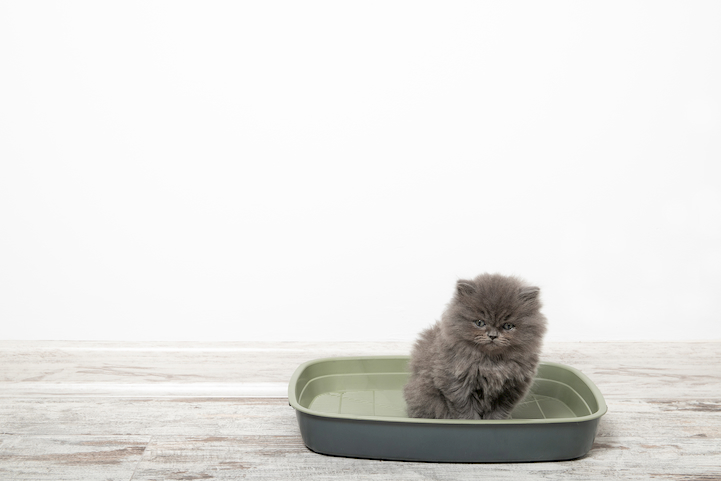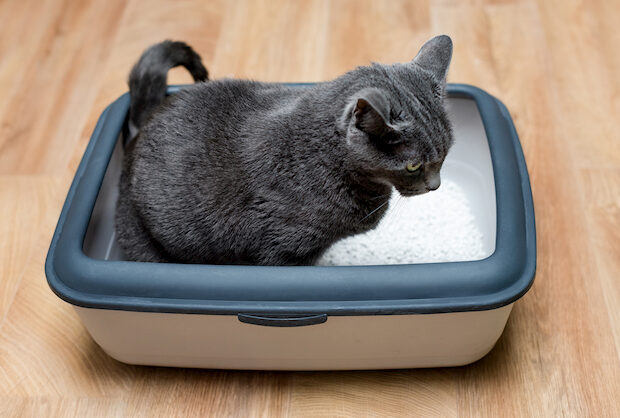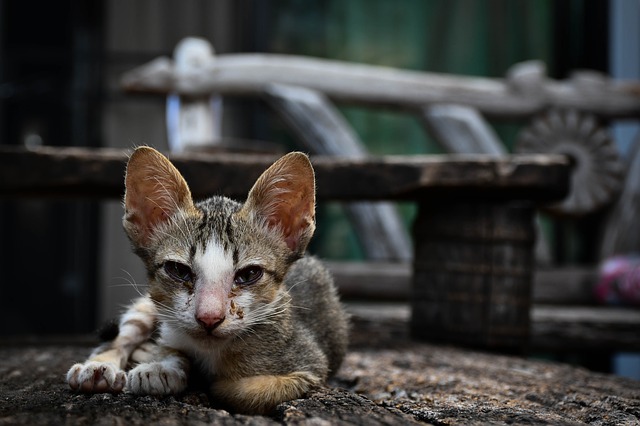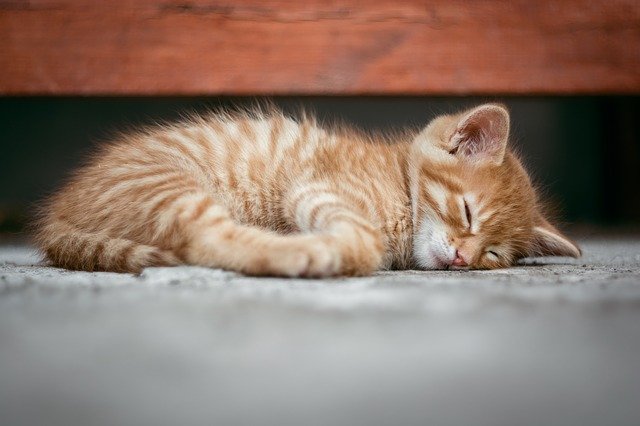How do I get rid of cat urine? It is a question commonly asked by cat owners or cat owners with multiple cats in their household.
How do you deal with cat urine smell effectively? How do you completely rid your home of this foul, lingering smell? In this article, I'll discuss some of the ways how to get rid of cat odor in the air. But first, why is cat urine smell so potent?
Table of Contents
Why Does Cat Urine Smell So Strong?
Cat urine contains uric acid, a strong-smelling compound that can stay in fabrics, woods, and carpets for several months and sometimes years. Even with some simple smell-removing techniques, the smell can persist as the acid often recrystallizes due to humidity.
Getting Rid of Cat Urine Effectively
Thankfully, it is possible to permanently eliminate cat urine odors with some safe, natural techniques. This section will discuss some safe ways to remove cat urine smells effectively.
Vinegar and Water
Spray in a mixture of one part white vinegar and two parts water on the problem area. Allow it to soak until it dries. When dry, check for smell and repeat the process if needed until the odor is eliminated.
Bleach Products
Good quality bleach will effectively remove both urine and fecal odors from any surface. However, ensure you first test any bleach you opt for in a small area. Then, clean or dab the urine with some pressure to remove as much as possible from the site, especially cushions.
Mix a scoop of bleach with 1 gallon of hot water. Hot water is not optional as it is needed to dissolve and activate the oxygen bleach.
Spray the mixture thoroughly on the area and allow it to sit for about 15 – 20 minutes so the area absorbs it. Dab excess liquid with a towel or vacuum and respray the mixture, then vacuum until there is no moisture left to be soaked.
Enzyme-Neutralizing Cleaners
Any good quality enzyme neutralizing cleaner will completely break down odor molecules in feline urine to eliminate the smell.
To use, start by:
- Sprinkling some water on the area to dilute the smell. Do this multiple times if needed to remove as much of the urine or fecal smell as possible. Avoid over-wetting the area as this could cause the stain to spread to other previously unaffected areas.
- Dab the moisture with a dry towel to reduce moisture, stain and smell.
- Spray the area with the enzyme-neutralizing cleaner ensuring you apply enough to saturate it.
- Leave the cleaner on the area for about 15 minutes then dab with a dry towel to remove some of the liquid, then, leave it to dry with natural hair.
- You can also wash the machine-washable affected items in a washing machine with the enzyme neutralizing cleaner.
Baking Soda
A simple DIY remedy, baking soda, may help remove cat urine smells, especially newly sprayed areas. Sprinkle some water on these places and dab with a dry towel. Then, sprinkle in the baking soda and allow it to sit for some hours or even overnight.

Eliminating Cat Smells: Prevention
Even though the methods outlined above can effectively remove smells, prevention is still the best with cat urine.
Ensure that the litter box and its surrounding area are kept clean at all times, as cats will avoid an area if messy or unkempt. Also, check to ensure the cat isn't suffering from an underlying health issue, especially if it had been litter-trained, and the behavior seems to have begun out of the blue.
Also, avoid leaving physical products like shed hair, hairballs, and litter around. Keep areas your cat frequently visits clean, as having their smell on a place can keep attracting them there.
Other things you can do to avoid cat smells include;
Clean up urine as soon as it happens
Don't wait; clean it up immediately whenever you find your cat peeing or having just peed in an area. Leaving the urine to stay there will only worsen the smell and make clean-up and smell elimination harder later.
Wipe down the area thoroughly with soapy water or water mixed with alcohol and dry with a vacuum cleaner or natural air. Repeat until the room or items are entirely free of the smell.
Air cat litter area and other frequently visited areas
Open the doors and windows to allow in the fresh air. Do these, especially after you clean the room, to let in the fresh air and help the smell disappear entirely and the room fresh-smelling.
In some cases………………………….
Sometimes, a cat's spraying may be bad enough to damage some of its items. It may happen when the area is frequently exposed to urine or fecal matter and is left unattended. In this situation, discarding the items and replacing them with new ones may be the only option. While you can clean and restore the floor and leather cushions, carpet and carpet paddings, on the other hand, may need to be thrown out and replaced with new ones.
You should avoid using ammonia-based cleaners as these tend to smell like feline urine to the cat due to the presence of ammonia.
Also, avoid applying direct heat or using steam cleaners to remove the smell. The heat can set the scent and stain into items, thus making cleanup difficult.
Keep old towels on standby to blot as much of the urine as possible immediately after your cat sprays in an area. Doing so will help prevent the smell from setting in and make cleanup a lot easier.
Preventing Spraying
When cats start spraying suddenly, it can be a sign of an underlying problem. Poorly litter-trained cats will spray until corrected with the proper training.
If left to continue without correction, they naturally assume that the behavior is acceptable. Retrain adopted cats even though their previous owner has trained the cat. Because while it may have had no problem finding its way to the litter box or using the litter area at its former home, it is still new to your home and would need some training to grow accustomed to it and litter properly.
Common Causes of Cat Litter Problem
Medical Condition
An underlying medical issue can be a reason your cat starts spraying all of a sudden. If you suspect this to be the cause, have your cat checked by a vet or a pet expert for proper diagnosis and treatment.
Litter Box Size
While cats enjoy their privacy, they also want enough space in it. A small or undersized litter box will cause your cat to avoid using the litter and instead litter in surrounding areas or in other places it is not supposed to.
Provide a large enough litter box for your cat and ensure that it is one it can get into and come out of easily.
Better Hygiene
Even after you clean your house and rid it of the urine smell, you should still try to make it stay that way by caring more for your cat if you haven't been doing so. Provide it with good quality food, a clean and quality litter box, brush and bath it regularly. If possible, apply safe, nicely-scented essential oils for cats in thier living area. The latter, while it is often used as a temporary fix for cat urine smell, can be beneficial to your feline in many ways.
Getting Rid of Cat Urine: Conclusion
Even though we love our felines and all their adorableness, it's hard to deny that urine smell can be off-putting. Thankfully, the home can get rid of cat urine smell with simple steps and products. And although you can mask the odor with air fresheners, these can only do much as the scent remains.
In this article, I discussed some of the things you can do to get rid of cat urine in your home. They are simple and highly effective when done right. I also discussed some of the ways you can prevent cat urine or fecal smell in the first place. These methods include cleaning up the mess as soon as it happens, litter-training your feline, better hygiene, quality food, and finally, vet care to identify possible causes.
Again, do not use direct heat or a steam cleaner as it is an easy way to get the smell to set permanently or make cleanup a challenge. Try to keep it simple, and keep in mind that strong odors or odors left unattended for too long often lingers in fabrics, wood, and carpets and would require longer, more intense treatments. You can also prevent future sprays by spraying a special formulation on these newly cleaned areas to avoid a reoccurrence.
Finally, while the other steps are essential, litter training remains crucial. Make sure you train your kitten or your newly adopted cat as soon as it is possible.
About the Author
Kirsten Heggarty
Kirsten created The Pet Handbook with the aim of sharing her knowledge about pets, pet food, healthy habits, and more. All of her advice is based on years of her own experience with her pets, and feedback that she has received from grateful readers about her tips. If you want to know more please read the About Me page.









